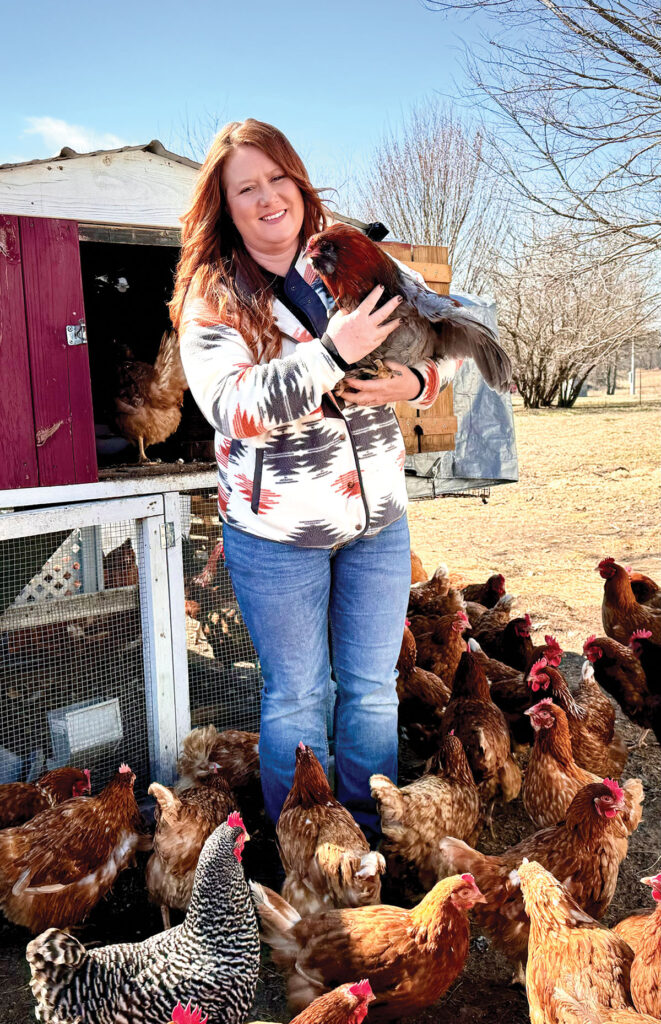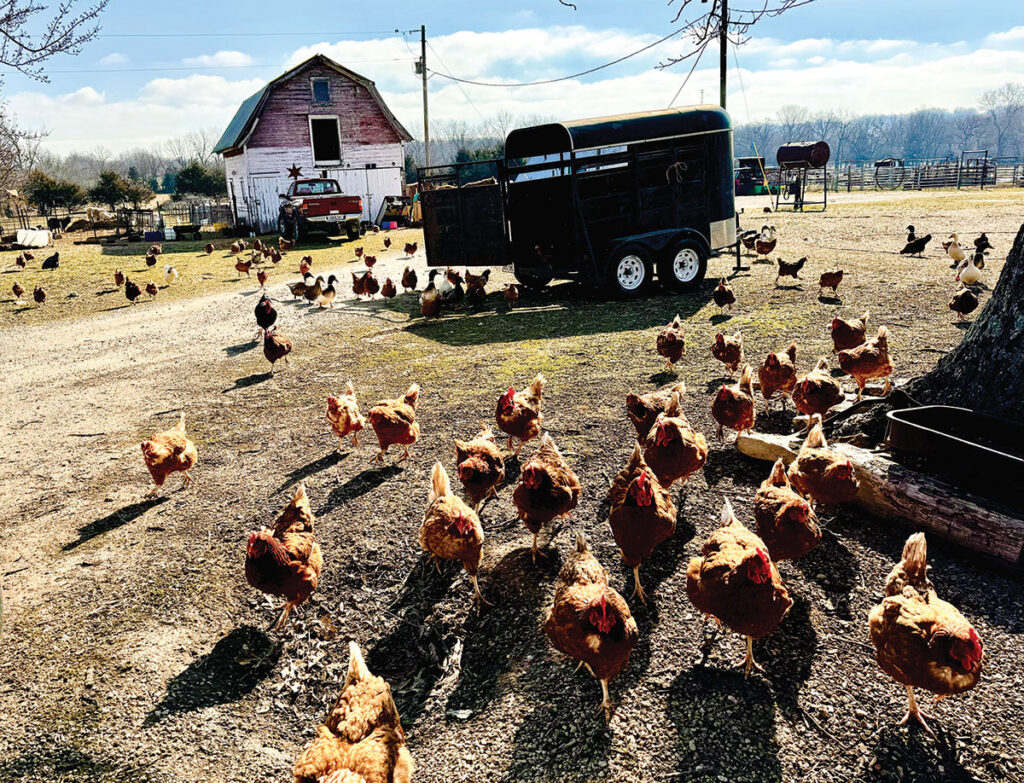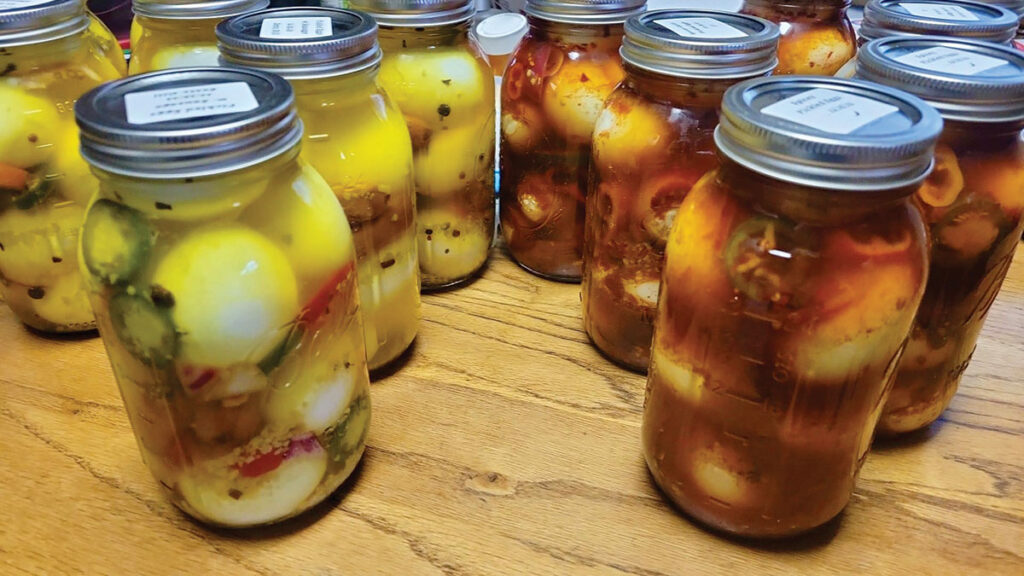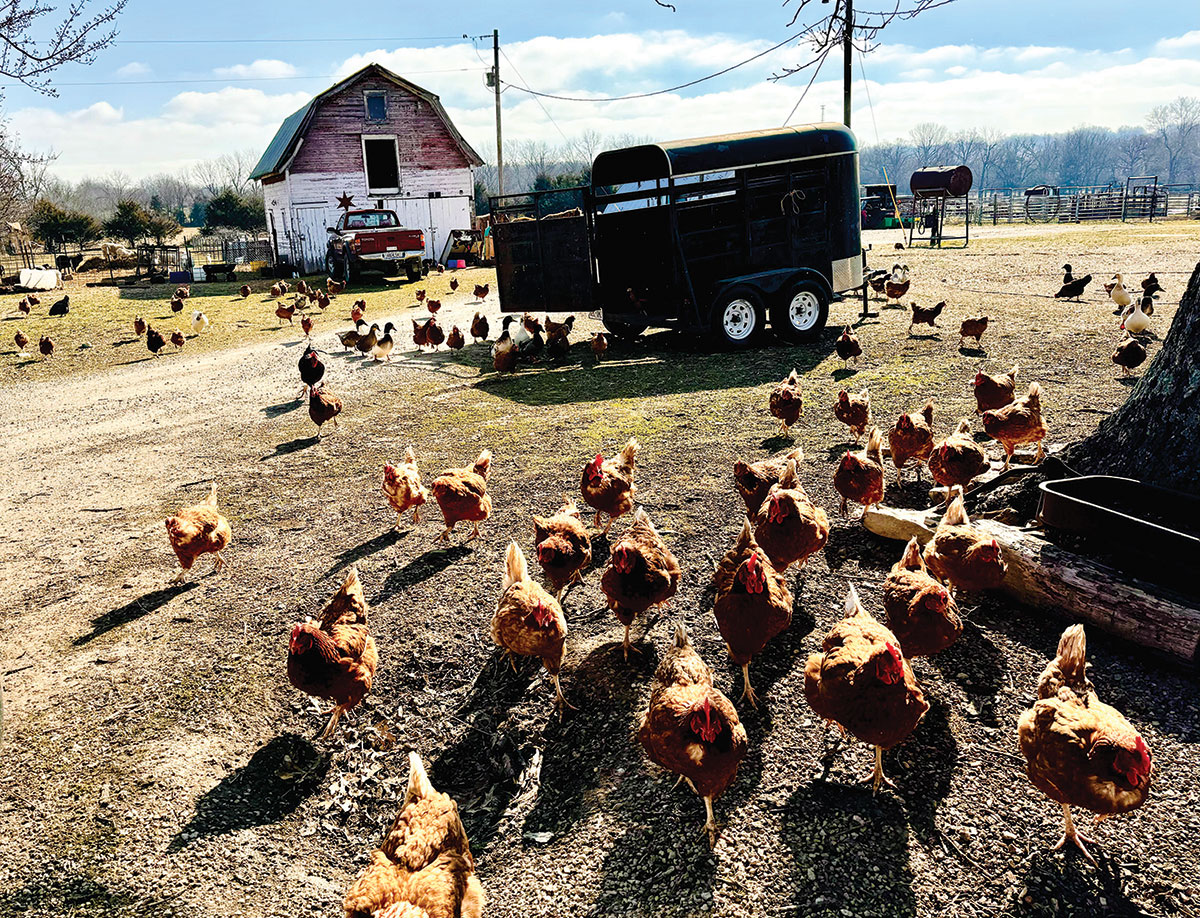
Family farm near Everton, Mo., specializes in locally-produced products
EVERTON, MO. – It doesn’t get more idyllic than the Ennis farm in rural Everton, Mo.
A friendly flock of chickens greets guests at their car as they arrive. Inside the farmhouse, chicks are hatching in the brooder and baby lambs frolic in the living room with 7-year-old son Grayson. It’s quintessential Ozarks farm life at its finest.
Charlie and Sara Ennis operate the Ennis Farm, offering free-range eggs, broilers and grass-finished beef. They also own Ennis Custom Hay.
Sara runs a thriving egg business. She cans specialty pickled chicken and quail eggs that her customers really enjoy. She also delivers to surrounding communities.
The family has lived on the farm for almost four years. They formerly resided inside the city limits of Everton, Mo.
“All our calves were started in town,” Sara said. “Everyone was amazed that we had livestock there but still maintained the cleanest yard. It was a full-time job just keeping everything up.”
Sara was born and raised on her parent’s farm in Everton so there was no learning curve when she got her start in the ag business.
Charlie is employed by the BNSF Railroad. When he’s not working, he spends a lot of time in the barn repairing farm equipment.
Heavy production birds are utilized on the farm, including 100 laying hens of the Bovan Brown, Hyline Brown, Light Brahmas, Barred Rock and Rhode Island Red varieties.
They have a total of approximately 200 chicken, quail, geese and ducks. They also raise Katadin sheep.
French Black Copper Marans are kept in a segregated cage. The rare breed is not often seen in the United States. They are docile, friendly, beautiful and known for incredible egg capacity.
The Black Australorps are known as a “dual-purpose egg machine.”
“I don’t let them out,” Sara explained. “They are my purebred birds that I want chicks out of.”
Sara sells adult chickens to family and friends, and she tries to keep as many as possible.
Affectionately known as “boss at calf,” Sara raises calves owned by a local dairy farmer.
“There are a lot of trips back and forth in the spring. As they are calving, he pulls groups of the bulls and lets me know when to come get them.”

Sara raises 50 to 60 bottle bull calves in the spring. They are all beef dairy crossed with Jersey or Holstein and others are crossed with mixed breeds.
“Genetically, they are anywhere from one-half to three-quarters beef. A lot of Hereford or black Angus are crossed with dairy cows.”
The farmer will not allow his calves to leave until they are at least 2 or 3 days old and have had all their colostrum. They have to be 100 percent healthy before they leave his farm.
“We have very healthy calves,” Sara said.
The feeder steers are sold at the sale barn or go to the feedlot. They hold back a few to finish, others are sold to customers.
The cattle are vaccinated per health protocols.
On the avian side of the farm, Cornish Crossed meat broilers are processed at a Troyer’s USDA-inspected meat processing facility. The birds they keep for themselves are processed at home.
“We prefer all free-range birds,” Sara noted. “They’re not the smartest though; they do have a tendency to gravitate toward the road and we lose some of them.”
Luckily, there’s a big red dog that lays out in the front yard. He diligently guards the chickens and keeps all the predators at bay.
“All our neighbors know our chickens,” Sara added.
The Coturnix quails have their own covered enclosure. They are prized for their meat and egg production. One Coturnix can lay as many as 300 eggs per year.

Sara uses quail and chicken eggs in her specialty hot pickled eggs. Quail eggs include Zesty Dill, Zesty Bread and Butter, Garlic Dill. Chicken eggs Spicy, Spicy Garlic, Garlic Onion and Zesty Dill. She also sells pickled green beans.
“I had to work at the picked eggs,” Sara said. “Eggs will absorb spice, but they won’t absorb heat. My husband’s favorite is the Bread and Butter eggs.”
The chickens are fed a 16-percent commercial laying pellet. The quail get a 16-percent laying crumble.
“We have always had excellent results with that feed,” Sara added. “Especially at the low price we get it for.”
The chicks get a commercial grower feed. The calves get stocker grower.
The Ennis’ prefer to spend their money local at MFA and Gordon’s feed in Ash Grove, Mo.
“They take really good care of us,” Sara said.
Free-range birds do not require added minerals.







